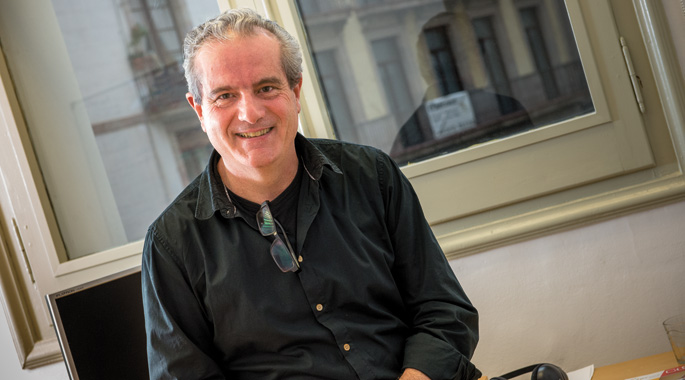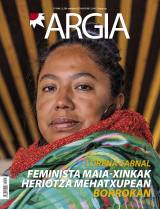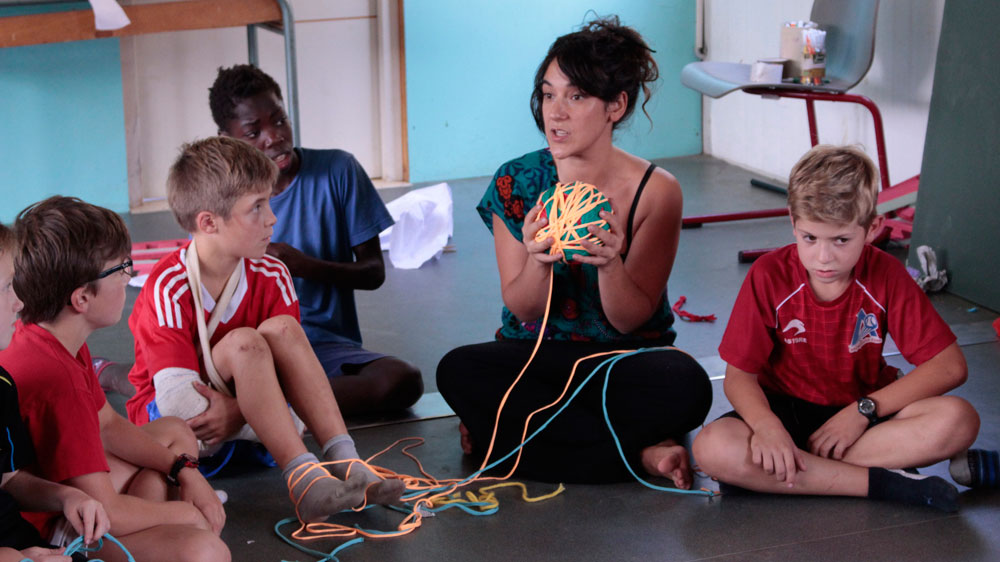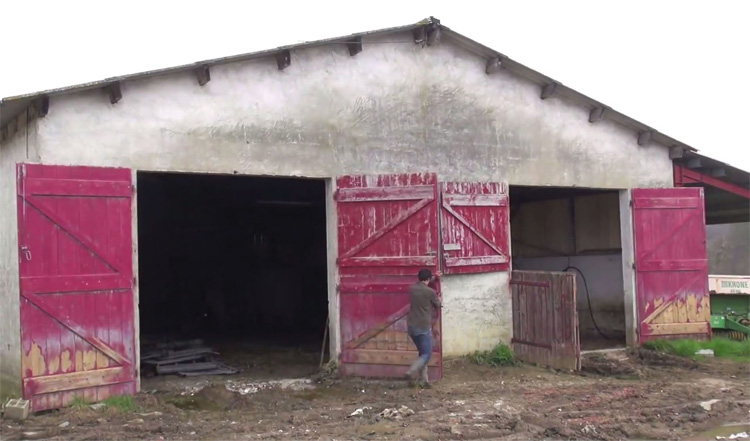“Only with a network organized from the bottom can the social economy be boosted from the institutions”
- It is not an easy task for the institutions to defend and promote what has been claimed for dozens of years by popular movements. You know something about all of this Jordi Via who has received us in Barcelona. Having been for years one of the precursors of the transformative social economy, he is now trying to influence the Barcelona Development Agency, taking advantage of the opportunity given to him by the new municipal government.

But we have managed to make an appointment in his office. We've been worried about what we've found when we leave the subway station and take a 200-meter GPS-guided tour of the cell phone. The Barcelona Development Agency is a huge monster made up of three buildings. We enter one of those buildings with a lot of doubt, and after asking, they send us next door. He receives us a security officer and asks us for the name, surname and ID number of one of us before sending it to the third floor.
There we've found a gigantic office that brings together about 60 people. We have been asked to wait and the Secretary of Viá has arrived soon. After him we have crossed the long hallway to the office that is at the end, and there he has left us unchanged, with the theme of conversation up to the point.
He has had two or three gestures enough to indicate that the chief of security, a building like Sillicon Valley and the office at the end of the hallway are as alien to us: “I am one of you,” we read between the lines. By the time we've turned on the recorder, all the concerns have faded.
“I sincerely believe that in Barcelona it is possible to influence the institutions. And I think that’s because there’s a reality that needs to be taken into account.”
Tell us, how did you come to a position like this? What has been your trajectory?
Let me see if I can sum it up. After passing through the Catalan anti-authoritarian left, in the 1980s I was part of a frustrated attempt to enter the institutional struggle, which we call Bloc d’Esquerra d’Alliberament Nacional. Learning by making mistakes is hard, but if you're willing to take advantage of it very useful. After that failed attempt, some of us decided that if we wanted to transform society, we could not limit ourselves to the effort to appropriate institutional power. If we wanted another society, we had to start building it.
So, and seeing that we were working for companies that defended what we were reporting on the streets, I decided to create a cooperative project. Since then, I have worked for 35 years to make this other economic model visible and demonstrate that it is possible through practice. I am a member and founder of the Ars cooperative, which offers ethical and solidarity insurance, and all those years have given for many other things: For example, focus on the promotion of the social and transformative economy network of Catalonia (XES).
Suddenly, the city government changes and the phone rings.
Just ten months ago it was unthinkable for me to be in such a place. But what to do when a new municipal government with transformative will proposes to be a representative of the social and transformative cooperative economy? In addition, I was asked a very specific question: “For 30 years you have claimed the need to drive this economic model from the institutions as well. Now come and teach how to do it.”
What has led me to give a yes to this challenge has, however, been the following: I really believe that it is possible for the institutions in Barcelona to influence it. And I think this is because there is a reality that is already very much to be taken into account, which can be promoted: cooperatives of transformative purpose, community projects that have been developed outside the market, associations…
What is the network and movement in Barcelona?
In total there are more than 4,700 companies and entities within what we call the social economy, more than 53,000 people work, at least 500,000 people belong to a consumer cooperative, there are more than 300 community economy projects. There is a very vivid, diverse reality, but on the same basis: that through practice they create a different economy, at the service of people, with the will to deepen democratisation and social responsibility.
“Cooperativism cannot be left to the most institutionalized cooperativism with the
aim of social transformation”
How does the network that has been developed from the City Hall outside the institutional support operate?
The way the previous municipal governments understood the social economy was very different. They approached the theme from a palliative care perspective, supporting only the reinsertion companies. The novelty is that, from our point of view, we live the social and transformative economy as a socio-economic model that we must drive from the root.
We have been working for nine months and at this time we are defining a line of work, but always from the works and conclusions of XES and the agents who have worked on the subject for years. We are marking the steps we will take in the coming years from the City Hall, but we will contrast it with the agents of this area through a participatory process. The key is common work, although it is not always easy.
Consumption can be a good opportunity to promote an alternative model. How does Barcelona City Hall consume?
One way is to provide training to promote alternative economies and to adapt the conditions to boost what has already been created. But yes, the Barcelona City Council has an annual expenditure of EUR 2 billion, and our goal is to make an ethically responsible purchase. We want to support the companies that take on those values that we demand.
Does it mean social clauses?
Yes. There are already clauses, but as has already been said, they have a palliative care character, and we need the steps that go further to shape a social market. With these clauses we must create conditions that are positive to support companies pursuing this objective.
But there are also cooperatives that meet these requirements and that work on the logics of capitalism.
We have a problem with that, yes. Eroski is cooperative. Even the most conventional company should reach these minorities, and unfortunately this is not the case. But still, it's not enough. Formulae must be sought to encourage small and medium-sized enterprises to contribute to the penetration of the social market through these clauses.
“The City of Barcelona has an annual expenditure of €2 billion and its objective is to make an ethically responsible purchase”
But it's not all easy around this possible network either. How are these concerns and confrontations managed?
With the aim of social transformation, cooperativism cannot be left in the hands of the most institutionalised cooperativism, since they will adopt and put an end to the attitude of conventional companies operating within the logic of the market. It's important to know where they are and make those differences. You have a good example with Mondragon and Olatukoop.
On the other hand, even being aware of the existence of these distances, we must be able not to build intermediate walls. We cannot fall into incommunication and sectarianism if we want to take steps towards the construction of an alternative model. We have to create alliances for social transformation: alliances with the popular movement on the one hand and with the socio-business fabric and several cooperatives on the other. You can't create a different market if you focus on differences, not only if you play with the most radical bets, at least for the time being it's very difficult. We need to find spaces for collaboration.
You mentioned the differences between Mondragon and Olatukoop. Soon you come to Euskal Herria and there you will explain this to us further?
I have been invited to the Kooperarock conference organised by Lanki. I met Lanki five or six years ago, and I found it interesting that he read about the development of the Mondragon group, the importance of reclaiming it as a risk of loss of cooperative identity. I will be in Euskal Herria on 10-11 May and we will have the opportunity to speak and delve into it.






















